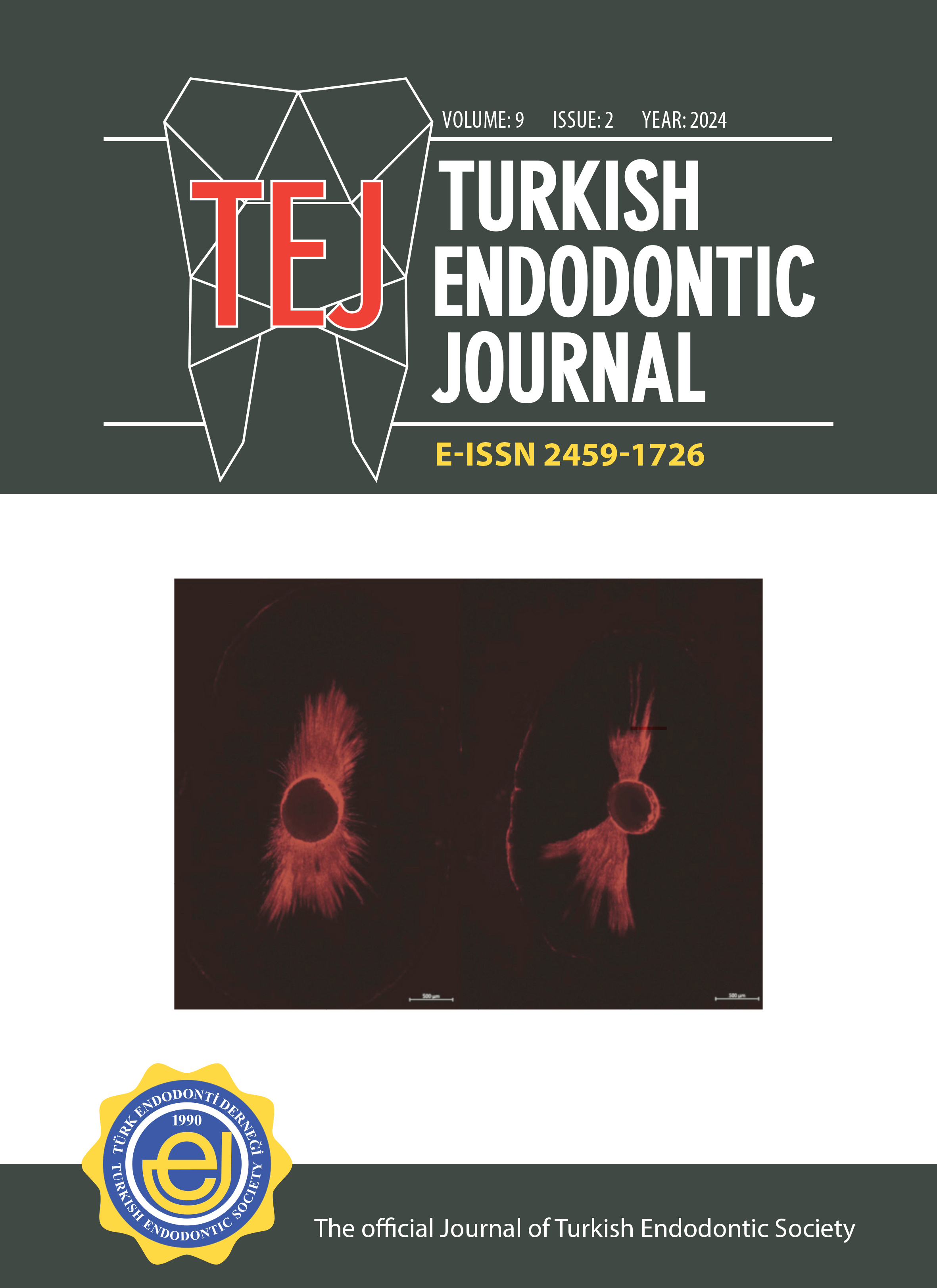The comparative evaluation of temperature changes on the external root surface during the application of different obturation techniques
Fatoş Albayrak, Recai ZanDepartment of Endodontics, Faculty of Dentistry, Sivas Cumhuriyet University, Sivas, TürkiyePurpose: The present research aimed to examine the possibility of damage to tooth support tissues induced by temperature changes on the external root surface while applying different obturation techniques.
Methods: One hundred fifty mandibular premolar teeth were prepared using a ProTaper Next nickel-titanium rotary file system. After the preparation, the distance between the inner dentin and the external cementum was measured at nine points with cone-beam computed tomography. Then, 100 teeth with the closest dentin thickness were included in the study. The teeth were randomly divided into five groups: cold lateral condensation, warm vertical condensation, continuous-wave obturation, thermoplastic injection, and carrier-based obturation techniques. Temperature changes were measured from the external root surface with the degree of intraoral temperature while applying obturation techniques.
Results: The warm vertical condensation technique caused the highest temperature increases statistically, and the lowest temperature increases were detected while applying the cold lateral condensation and carrier-based obturation techniques.
Conclusion: Consequently, obturation techniques may be safely preferred in terms of temperature increases that may cause damage to supporting tissues.
Keywords: Cone-beam computed tomography, dentin thickness, obturation techniques, temperature increases, warm gutta-percha.
Manuscript Language: English



















